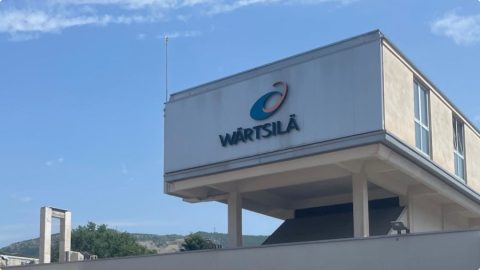The Track Access Charges Summit starts today

The Track Access Charges Summit kicks off today in Rotterdam, the Netherlands, with a full and very interesting two-day programme. During this hybrid event taking place on 20 and 21 April, experts from all over the world will discuss the most recent developments in track access charging (TAC). Here is what to expect.
Throughout the pandemic, track access charges have been reduced, mark-ups have been waived, and infrastructure managers compensated to support the rail freight sector in these difficult times. Now that the pandemic is retreating, what does the market look like? Does it still need support? And what are the consequences of market interference?
What do we know now?
What happens with the mark-ups that were skipped during covid? Is the market able to bear them now? What did we learn from waivers? Have they contributed to the survival of rail freight, or has it affected the ability of the market to bear charges?
Infrastructure managers have been compensated for the loss in revenue in some cases, but by far in all cases. Although train volumes are now back to normal, the revenue of infrastructure managers is not yet at a pre-COVID level, especially where compensation was insufficient. This is a serious problem that needs to be addressed now, said the Community of European Railway and Infrastructure Companies (CER) when presenting its COVID impact tracker in February. Are these issues indeed addressed?
You can tune in to listen, or participate in the discussion this day, provided you have a ticket. The event takes place in Rotterdam, but you can also join digitally. Tickets can be found here.
What else?
The pandemic was not the only development affecting TAC since the last event two years ago. The Green Deal has increased the urgency to incentivise rail transport. The sector seized this opportunity to point out the unfair playing field for rail compared to road, among others in support measures for the industry. Akos Ersek from UIRR talk about this topic.
Mark ups are a suitable way to incentivise green transport, for example by charging less when the journey emits less carbon emissions. What else can be done? Maris Andiņs from LatRailNet as well as Normunds Krumins from the Latvian Logistics Association share their expertise on this topic.
Looking abroad
This year, there will be specific focus on some country-specific cases. Rail Baltica is in the spotlight. Will the new corridor be the first example of a harmonised TAC principle? It is what the EU has always wanted, but was not able to due to a complex transport landscape. However, Rail Baltica is a green-field project. Is this the advantage needed for a harmonised fee on the corridor? Jānis Eiduks and Kaspars Briskens, both from Rail Baltica, will be able to give the latest information.
Apart from Rail Baltica we will also look at the Middle Corridor, which currently plays an important role as an alternative to the main route between Europe and China. However, the financial attractiveness of this corridor is still limited. The World Bank has recently carried out a study to see what is needed to imporve the tarrifs, especially in Georgia and Azerbaijan. Victor Aragones from the World Bank will present these findings.
The academic approach
In line with the trait mark of the event, there will also be specific focus on the latest calculation models. The day concludes with presentations from a series of academic that have deep knowledge of the topic: Stefan Marshnig from the University of Graz, Stephen Matthews of the University of Leeds and Borna Abramovic from the University of Zagreb.
Will we see you there? Visit the website of the event for more information.
You just read one of our premium articles free of charge
Want full access? Take advantage of our exclusive offer






